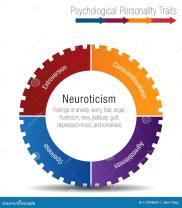What are some good things about introverts?
Introverts possess a range of valuable qualities and strengths that make them unique and capable individuals. Here are some advantages and strengths associated with introversion:
Deep Thinkers: Introverts tend to be deep thinkers who reflect on their thoughts and ideas. They often engage in introspection, which can lead to insightful solutions to complex problems.
Creativity: Many introverts have a rich inner world, making them highly creative. They often excel in creative fields like writing, art, music, and design.
Excellent Listeners: Introverts are typically great listeners. They pay attention to details and nuances in conversations, which can be beneficial in both personal and professional relationships.
Empathy: Introverts often have a heightened sense of empathy. They can intuitively understand others' emotions and provide meaningful support and comfort.
Independence: Introverts are self-reliant and often comfortable working independently. They can manage tasks and projects effectively on their own.
Focused and Persistent: Introverts are known for their ability to concentrate deeply on tasks. They can maintain focus for extended periods, leading to high-quality work and problem-solving.
Analytical: Many introverts have a natural inclination toward analysis and critical thinking. They excel at breaking down complex issues and finding logical solutions.
Strong Work Ethics: Introverts often possess strong work ethics. They are willing to put in the effort required to complete tasks thoroughly and efficiently.
Thorough Planning: Introverts are meticulous planners who consider various scenarios and details before taking action. This trait is beneficial in project management and decision-making.
Adaptability: While introverts may prefer quieter environments, they can adapt well to social situations when necessary. They can effectively switch between introverted and extroverted behaviors as needed.
Loyalty in Relationships: In personal relationships, introverts are often known for their loyalty and deep connections. They prioritize quality over quantity in their friendships.
Resilience: Introverts tend to handle stress and adversity well. Their introspective nature allows them to process challenges and bounce back effectively.
It's important to note that introversion is just one aspect of a person's personality, and individuals can have a mix of introverted and extroverted traits. Embracing one's introversion and recognizing its strengths can lead to personal and professional success. Additionally, introverts can complement extroverts in various team settings, making diversity in personality types a valuable asset.
The Strengths of Introverts: Appreciating Their Unique Qualities
Introverts are often misunderstood and undervalued. However, they have many strengths that can be valuable in both personal and professional settings.
Here are some of the strengths of introverts:
- Good listeners: Introverts are typically good listeners because they are thoughtful and introspective. They take the time to understand what others are saying before they respond.
- Creativity: Introverts often have rich imaginations and are good at coming up with new ideas. They are also often able to see things from different perspectives, which can lead to innovative solutions.
- Thoughtfulness: Introverts tend to think carefully before they speak or act. This allows them to make sound decisions and avoid impulsive mistakes.
- Attention to detail: Introverts are often detail-oriented and have a strong work ethic. They take pride in their work and strive to do their best.
- Empathy: Introverts are often very empathetic and able to understand the feelings of others. This makes them good friends, colleagues, and partners.
Introverts Unleashed: The Advantages of Being Quiet and Thoughtful
Introverts may not be the loudest or most outgoing people in the room, but they have many advantages over extroverts.
Here are some of the advantages of being an introvert:
- Introverts are better listeners. They take the time to understand what others are saying before they respond. This makes them more effective communicators and better collaborators.
- Introverts are more creative. They often have rich imaginations and are good at coming up with new ideas. They are also often able to see things from different perspectives, which can lead to innovative solutions.
- Introverts are more thoughtful. They tend to think carefully before they speak or act. This allows them to make sound decisions and avoid impulsive mistakes.
- Introverts are more detail-oriented. They often have a strong work ethic and take pride in their work. This makes them more reliable and trustworthy.
- Introverts are more empathetic. They are often very empathetic and able to understand the feelings of others. This makes them better friends, colleagues, and partners.
The Introvert's Edge: How Introversion Can Be a Superpower
Introversion is often seen as a weakness, but it can actually be a superpower in the right setting.
Here are some ways that introverts can use their strengths to their advantage:
- Introverts can use their listening skills to build rapport and trust with others. They can also use their listening skills to gather information and solve problems.
- Introverts can use their creativity to come up with new ideas and solutions. They can also use their creativity to express themselves in their work and personal lives.
- Introverts can use their thoughtfulness to make sound decisions and avoid impulsive mistakes. They can also use their thoughtfulness to plan and prepare for important events.
- Introverts can use their attention to detail to produce high-quality work. They can also use their attention to detail to spot potential problems and identify opportunities.
- Introverts can use their empathy to build strong relationships with others. They can also use their empathy to understand the needs of customers and clients.
If you are an introvert, embrace your strengths and use them to your advantage. You have a lot to offer the world.













